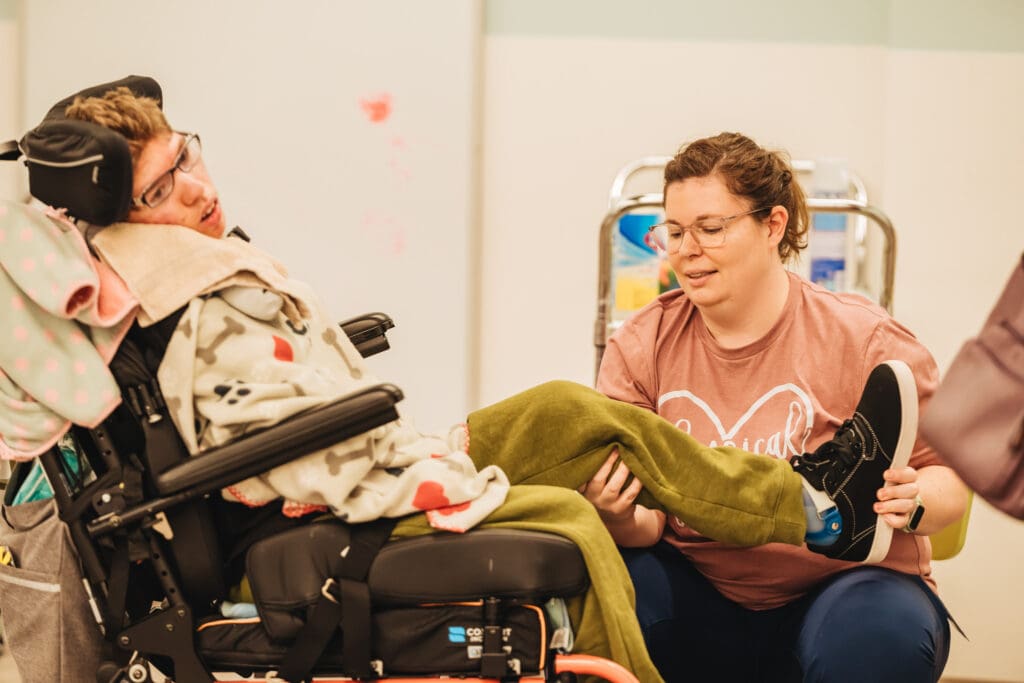
The Importance of Family-Centered Care: Enhancing Autism Support Services
In autism support services, the philosophy of “family-centered care” has become a cornerstone for delivering effective interventions and fostering meaningful outcomes. This approach respects and acknowledges the essential role families play in the lives of individuals with autism spectrum disorder (ASD), involving them as active participants in planning, implementing, and evaluating care. Family-centered care is vital in autism services, where the relationship between the individual’s needs and family dynamics is crucial to achieving long-term success.
Defining Family-Centered Care in Autism Support
Family-centered care in autism support services emphasizes collaboration and respect, recognizing that families are experts in their loved one’s needs and experiences. Key principles include:
- Empowering Families: Acknowledging families as partners and decision-makers in care planning.
- Two-Way Communication: Facilitating open, ongoing dialogue between providers and families.
- Individualized Support: Tailoring interventions to align with the family’s cultural, linguistic, and personal values.
- Emotional and Practical Support: Addressing the psychological and logistical challenges faced by families.
Why Family-Centered Care Matters in Autism Services
Autism spectrum disorder impacts not only the individual but also their family, who often navigate complex care systems and advocate for their loved one’s needs. Family-centered care ensures that families receive the support they need to foster growth and independence in their loved ones. Key benefits include:
- Improved Outcomes for Individuals with Autism: Research highlights that when families are engaged in therapy and educational interventions, individuals with autism show greater progress in communication, social skills, and adaptive behaviors.
- Reduced Family Stress: Families of individuals with autism often experience high levels of stress due to caregiving demands. Family-centered care provides resources and emotional support to mitigate this burden, improving overall family well-being.
- Enhanced Satisfaction with Services: Involving families in the decision-making process builds trust and ensures that interventions align with their goals and values, leading to higher satisfaction and better adherence to care plans.
- Support for Lifespan Transitions: Family-centered care equips families to navigate key transitions, such as starting school, entering the workforce, or accessing adult services. This holistic approach promotes continuity and stability across the lifespan.
Core Components of Family-Centered Care in Autism Support
Implementing family-centered care requires focus on several critical areas:
- Comprehensive Assessment: Understanding the needs, strengths, and goals of both the individual with autism and their family is essential. This involves listening to family members’ concerns and incorporating their insights into care planning.
- Family Education and Training: Providing families with knowledge about autism, therapeutic strategies, and behavior management empowers them to support their loved one effectively. Workshops, coaching sessions, and online resources are valuable tools.
- Collaboration with Multidisciplinary Teams: Autism support often involves professionals from various disciplines, including speech therapy, occupational therapy, and education. Coordinating care ensures that families receive consistent, cohesive support.
- Flexibility in Service Delivery: Adapting services to accommodate family schedules, preferences, and needs, such as offering teletherapy or home-based interventions, enhances accessibility and engagement.
Where Can you Find Family-Centered Care?
The transformative impact of family-centered care is evident in a variety of settings:
- Early Intervention Programs: Early intervention services that actively involve parents in therapy sessions demonstrate significant improvements in children’s developmental milestones. Parents trained in evidence-based practices, like Applied Behavior Analysis (ABA), report increased confidence in supporting their child’s growth.
- School Collaboration: Schools that engage families in Individualized Education Program (IEP) meetings and classroom strategies create inclusive environments where children with autism thrive. Collaborative goal setting ensures alignment between home and school.
- Transition Planning: For adolescents and young adults with autism, family-centered care facilitates smoother transitions to higher education, employment, or independent living. Families equipped with resources and guidance can better support these pivotal changes.
Challenges and Solutions in Family-Centered Autism Care
Despite its benefits, implementing family-centered care in autism services presents challenges:
- Time Constraints for Providers: Engaging families thoroughly requires time that busy professionals may lack. Leveraging technology, such as video conferencing and digital resources, can extend support efficiently.
- Resource Limitations: Some families may lack access to autism specialists or financial resources for care. Advocacy for expanded funding, insurance coverage, and community-based services is essential to bridge these gaps.
- Diverse Family Needs: Families differ in their preferences, cultural backgrounds, and levels of understanding about autism. Providers must approach each family with cultural sensitivity and adaptability to address these variations effectively.
The Path Forward: Embracing Family-Centered Care
Family-centered care is not just a framework for autism support services; it is a philosophy that values the voices and expertise of families. As awareness of autism grows, so does the need for systems that prioritize collaboration and inclusivity. Healthcare providers, educators, and policymakers must work together to embed family-centered practices into every facet of autism support.
By embracing this approach, we create environments where individuals with autism and their families feel supported, empowered, and hopeful. Family-centered care ensures that no one faces the journey alone, fostering resilience and building brighter futures for those on the spectrum and their loved ones.
